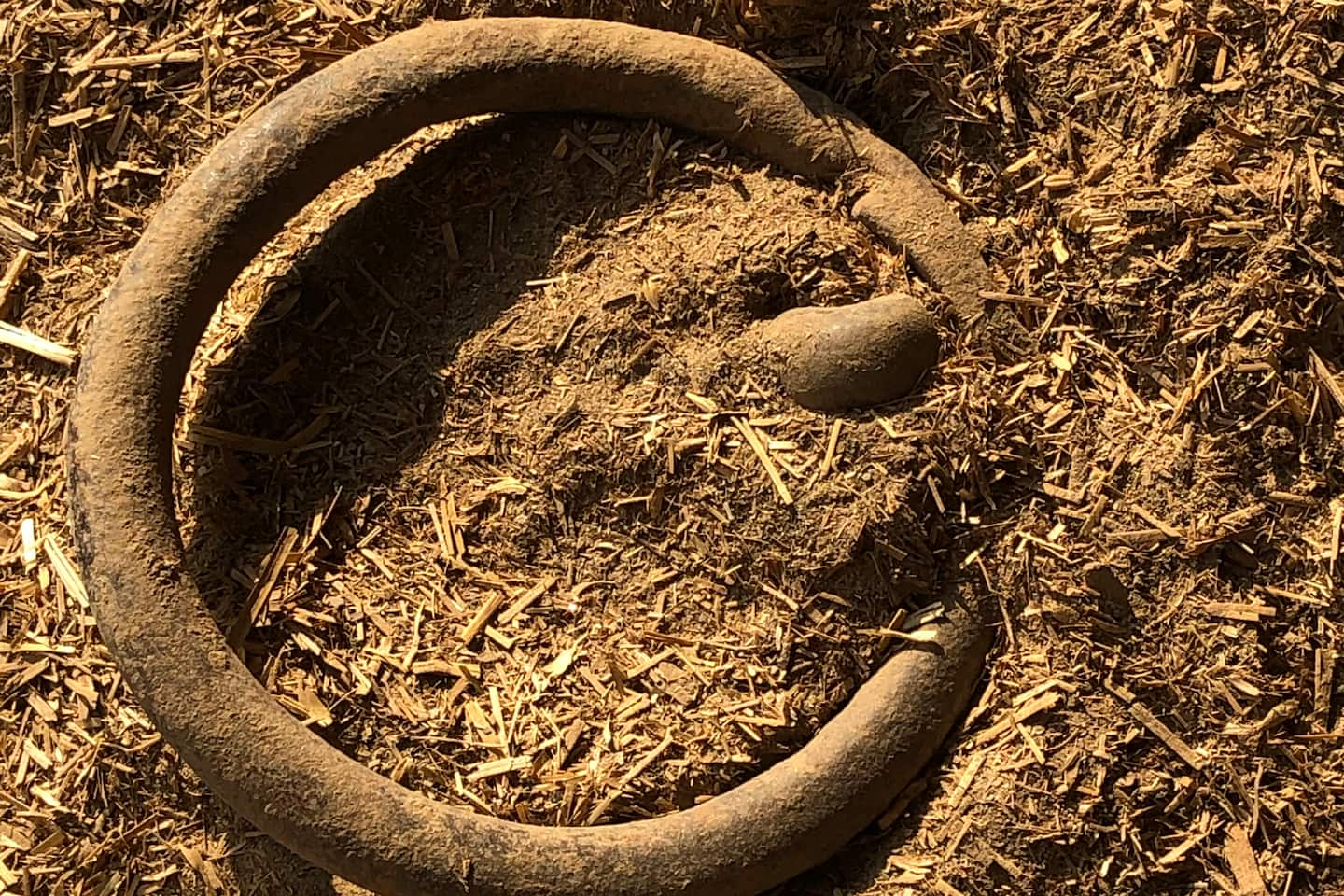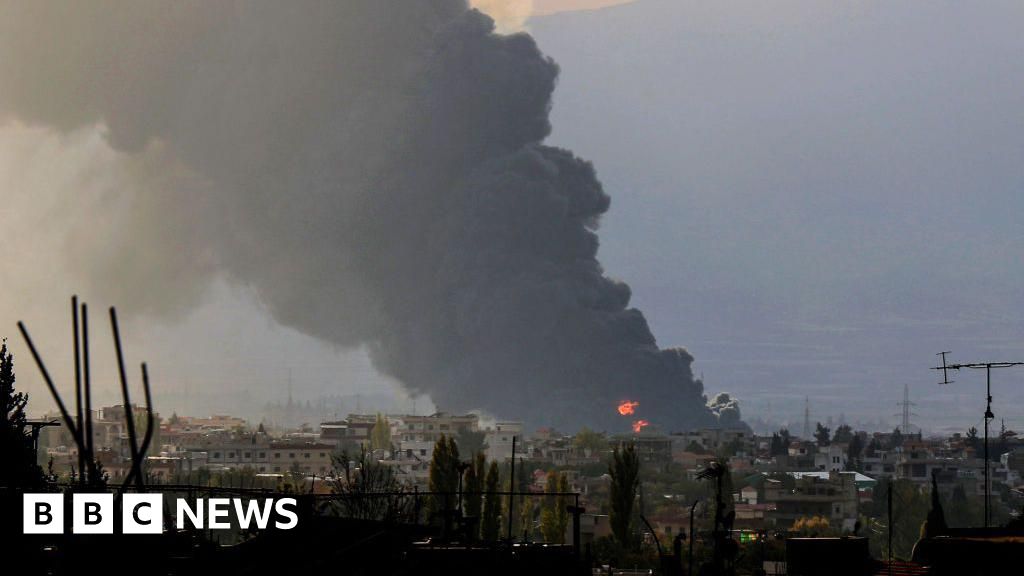Six weeks ago, Kavan is finally released from his prisonAfter a crusader Pakistani judge showed interest in the zoo’s problems, foreign activists led by singer Sher took over his ordeal. On November 30, the long-suffering elephant was transported in a designated steel box to a reserve in Cambodia. Animal lovers around the world cheered.
But for years, while the zoo has attracted thousands of visitors, many of its animals have faced cruel or unknown fates. Rights groups and journalists say the animals were chronically undernourished and poorly present when sick. Dozens have died from often unexplained causes. Others were lost or sold for profit.
“There was one qualified veterinarian in the zoo, and none of the other employees received training in managing or caring for the animals,” said Muhammad Bin Nafez, founder of an informal group called Friends of Islamabad Zoo. “We visited the whole time. We tried to point out the problems we saw, but no one listened.” He said workers were often hired through political ties or earned money from franchises. “No one cared.”
Marghazar Zoo is now closed, its cages are empty, and the lands to be converted into a modern park to protect wildlife. Malek Amin Aslam, a senior official in the Ministry of Climate Change, said the lockdown had created “an opportunity to start from scratch and do things right.” He blamed most of the zoo’s previous problems on “mismanagement.”
“The lesson is clear,” he said. “We have to take care of our animals and our nature. We have to have proper management, not allow unreliable people to take charge.”
Zoos in other cities in Pakistan have had a similar turbulent history. A giraffe died several weeks ago at Peshawar Zoo in northwest Pakistan, and lions were recently spotted starving at the Karachi Zoo. The sprawling Lahore Zoo, which is more than 150 years old, has lost chimpanzees, Bengal tigers and black bears to disease in recent years, and other animals have been reported to have shown signs of severe mental illness.
Ruthless animal practices, including dog fighting and bear hunting, continue to be out of the public eye. Two Himalayan brown bears at Islamabad Zoo were “dancing bears” who were forced to perform in public, had their teeth pulled out and their nose pierced with a rope. They were transferred to a wildlife sanctuary in Jordan last month and are in poor health.
The Islamabad Zoo, which has been a prominent attraction in the nation’s capital since it opened in 1978, has caused increasing concern among animal lovers for years. Last spring, a group filed a petition to the Supreme Court in Islamabad, requesting assistance. In May, the chief justice of the Supreme Court, Ataher Than Allah, issued a harsh 67-page ruling in which he found that the zoo had kept its animals in “extremely disturbing conditions” and “shockingly deplorable”, offering them to entertainment and ignoring their health and well-being.
In confronting one of the petitioners’ demands, by declaring that animals in the Islamic ummah have “non-human” rights, Min Allah quoted from the Quran and indicated that “Islam considers animals as living beings and creatures of God.” “You deserve care and compassion.”
He also cited contemporary rulings from all over the world in which judges ordered suffering elephants, orangutans, and killer whales freed from captivity. While it could be argued that a chimpanzee is not a “person,” one judgment said, “There is no doubt that it is not just a thing.”
Min Allah described in detail the plight of the animals of Marghazar. He wrote that the shaking of Kavan was “a clear indication of loneliness, distress and suffering.” The African lions were “visibly malnourished”. Himalayan brown bears were confined to “very small” cement containers, and one would need “immediate medical help” for a failed chest surgery that had developed a severe infection.
The verdict sparked an emotional public outcry. Some Pakistanis expressed their appreciation and gratitude; Others said that the judge brought shame and dishonor to their country. Controversy escalated with plans to send Kavan to Cambodia and sick brown bears to Jordan. A member of the Islamabad Wildlife Council described the relocations as “shameful endorsement of international propaganda that Pakistan is incompetent and cruel toward animals”.
But the frantic effort to relocate several monsters led to a terrible tragedy that seemed to reinforce that image. The two lions were to move to a private farm in Lahore, 170 miles away. To force them into a travel cage, two untrained workers set a fire in the enclosure, then immediately loaded the terrified pair into a truck. Soon both died from suffocation, pressure and smoke inhalation.
Today, the rickety lions’ cage sits empty, covered with rusty wires and torn cloth. He seemed to be too young to contain two powerful and agile creatures, who never left his limits. A nearby sign bears a picture of two majestic lions in the African wilderness, describing them as very social animals “whose roar may be heard in a great distance at sunrise and sunset.”
Kavan’s rescue, arranged by the international veterinary charity Four Paws, and the death of lions prompted some Pakistanis to think why they had enjoyed visiting the zoo for so long without thinking about how captive animals lived.
“Pakistan is not a despicable place that is incapable of raising animals.” A reader wrote to Dawn, “Animals weren’t on the priority list,” compared to basic problems like health and education.Sadia Owais said many people didn’t know Kavan was struggling until he made headlines. “Now that the story has been told, we know that wild animals are in the same pain as we do. They can be alone as we feel. “
The Pakistan Ministry of Climate Change took control of the Marghazar Zoo in early 2020 amid complaints about the conditions. The ministry is now working to reinvent the 82-acre campus as a conservation park with an educational center for children and open living areas for the indigenous and endangered animals of Pakistan. It is slated to be managed and redeveloped by the new Islamabad Wildlife Management Board.
On a warm December day, new chairwoman Rina Saeed Khan toured the empty zoo enclosures and grassy walkways and described ambitious upcoming plans. She paused silently at the cage of lions, and pointed to the concrete water pipe as the Himalayan bears tried to “hibernate”, ending up in the empty Cavan enclosure, still covered in reed dust.
Finally, there is a happy ending to the long and winding story of the Islamabad Zoo. “Let’s start over and try to do better,” she said.
At the front gate, a towering gray concrete elephant raised its trunk, greeting or saying goodbye.

“Guru professionista del caffè. Giocatore tipico. Difensore degli alcolici. Fanatico del bacon. Organizzatore.”







